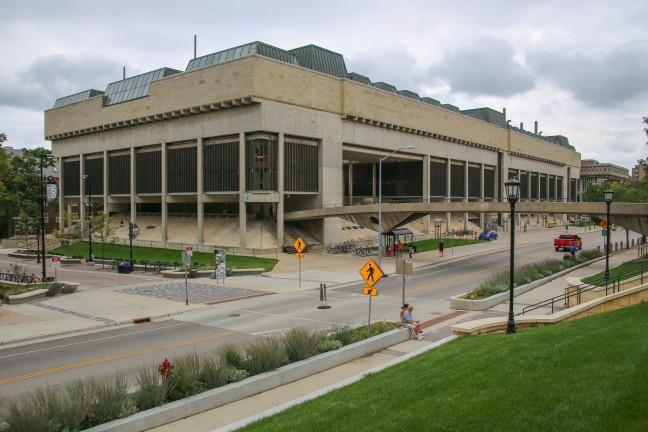Traveling is difficult for anybody. Whether it’s waiting for flight delays or applying for a travel visa, seeing the world just isn’t easy. But inaccessibility never stopped Gabriel Schlieve from seeing some of the world’s greatest wonders — from the Taj Mahal to the Great Wall of China. The 23-year-old Eau Claire resident has cerebral palsy, which makes traveling more difficult, as it’s hard to find accessible accommodations in the world’s most popular tourist destinations.
“I have tried my hardest to get into all the famous landmarks and most of them, except when I wasn’t discriminated against by policy, I’ve been able to overcome with a little elbow grease,” Schlieve said.
As a result, Schlieve is creating an app to make travel more accessible for people with disabilities. Hopefully, this app will bring tremendous improvements for those with disabilities as they travel the world.
Mobile health app for substance use disorders priority for healthcare, essential for Americans
The Rebel Traveler’s Guide to the World is an app currently in development that provides information on different tourist locations, such as if the location has an accessible entrance or the number of stairs one would have to climb, for example. Schlieve is starting small, with information about Eau Claire, the Twin Cities and Chicago, but hopes to expand the app internationally.
But at home in America, the fact there is a market for this app is disappointing. The Americans with Disabilities Act was signed into law in 1990 — almost 30 years ago. The act is a civil rights law that forbids discrimination based on disability. Included in the act are public accommodations, public entities, transportation and employment.
With the creation of this law came design requirements for buildings to make them accessible to people with disabilities. So much time has passed, and yet oversight has still left many people without accessible accommodations. And this isn’t just a national issue. Though the University of Wisconsin does quite a bit for its students with disabilities, more could still be done.
Soglin’s public transportation reform proposal excellent use of city funds
The McBurney Disability Resource Center at UW makes a tremendous effort to accommodate students with disabilities. According to their website, the “UW transportation Services Accessible Circulator Shuttle provides wheelchair accessible transportation both on a fixed/schedule route around campus and from campus building to campus building when needed.” The Associated Students of Madison also provide free para-transit services through Madison Metro.
Furthermore, the university has recently started adapted fitness and personal training through the Department of Kinesiology. Their mission is to accommodate students with permanent as well as temporary disabilities. This program allows students to “Work on improving activities of daily living and as a result become more independent from both physical and personal assistance.”
UW joins Shepherd Higher Education Consortium of Poverty, supporting internships in poverty studies
While UW does put in a valiant effort, there is still much more that can be done. For instance, the George Mosse Humanities Building is not the most accessible.
The ADA accessible bathroom is on the seventh floor of the building while one of the elevators only reaches the fifth floor. Though the building’s other elevator does reach the seventh floor, both elevators are difficult and time-consuming to find, thanks to the building’s unique design. This is counterintuitive, to say the least.
While Schlieve’s app is an impressive feat that has the potential to help thousands, the fact that an app like this is even necessary shows that America and even UW have a long way to go when it comes to accessibility.
The first step in solving a problem is recognizing there is one. It’s important that awareness among students and administrators can hopefully lead to open and productive dialogue about best possible solutions to problems that arise.
No university can be expected to be perfect, and UW does have great programs in place, like transportation services and numerous options from the McBurney Center. But there is always more to be done in the pursuit of perfection. Hopefully, the administration will take a proactive approach to deal with issues instead of becoming complacent with what is already in place.
Mitch Rogers ([email protected]) is a senior majoring in economics.














